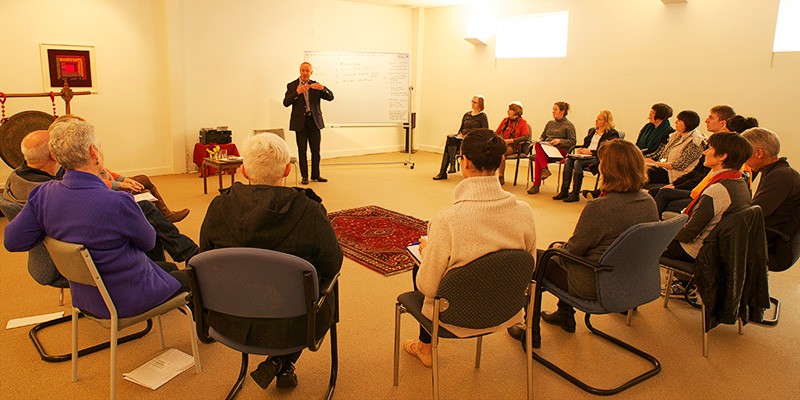Posts Tagged ‘social-emotional-learning’
Study: A combined teaching + app gratitude program helps adolescents address anxiety and improve mental health
Students and educators have started a new school year in the midst of a pandemic, an economic crisis, a reckoning with racial injustice, and a divisive political climate. Everyone’s mental health is at risk, and schools are searching for ways to support young people’s well-being in addition to their academic learning.
Read MoreSix tips for social-emotional learning (SEL) to transfer into real-world skills
___ Social-emotional learning (SEL) teaches the key attitudes and skills necessary for understanding and managing emotions, listening, feeling and showing empathy for others, and making thoughtful, responsible decisions. For five years, I was an educator in the field teaching mindfulness and emotional skills to teenagers at six different high schools. Over and over, I saw…
Read MoreStudy: Mindfulness training for teachers can result in a better learning environment for students
— No one would argue with the fact that teaching is stressful. Not only is the work highly challenging, teachers are also frequently underpaid, undervalued, and subject to harsh scrutiny. No wonder teacher burnout is on the rise and that many feel like leaving their profession. But teacher stress is not only a problem for…
Read MoreHow to Integrate Social-Emotional Learning into Common Core Standards
Do the Common Core State Standards undermine social-emotional learning? Many educators think so. In a recent Ed Week op-ed, an elementary principal argued that teachers were too busy teaching Common Core to address the social-emotional development of their students. I’ve heard the same argument from many teachers. This is troubling given that researchers strongly suggest that the learning process…
Read MoreUpdate: Major Implications from Brain Research
Here you have the twice-a-month newsletter with our most popular blog posts. Please remember that you can subscribe to receive this Newsletter by email, simply by submitting your email at the top of this page. Major Implications from Brain Research Should Social-Emotional Learning Be Part of Academic Curriculum?: It is clear by now that our brains…
Read MoreBrain-Based Carnival of Education, 186th Edition
Welcome to the 186th edition of the Carnival of Education, the weekly virtual gathering of dozens of bloggers to discuss all things education. Q: Why do you say this edition is “brain-based”? A: Because the Q&A frame we are using is inspired by how Chris at Ouroboros recently hosted Encephalon Brain and Mind blog carnival.…
Read More


